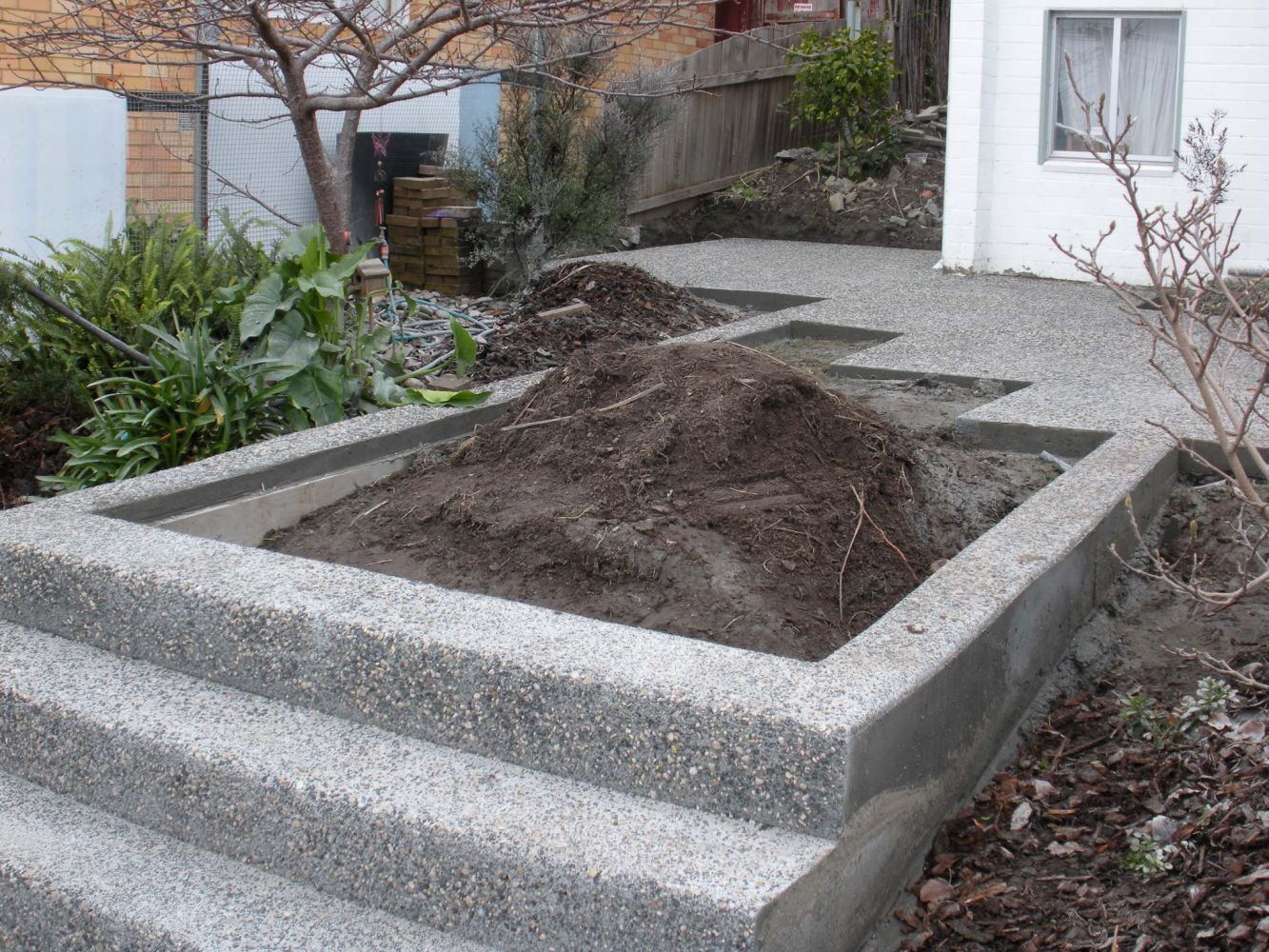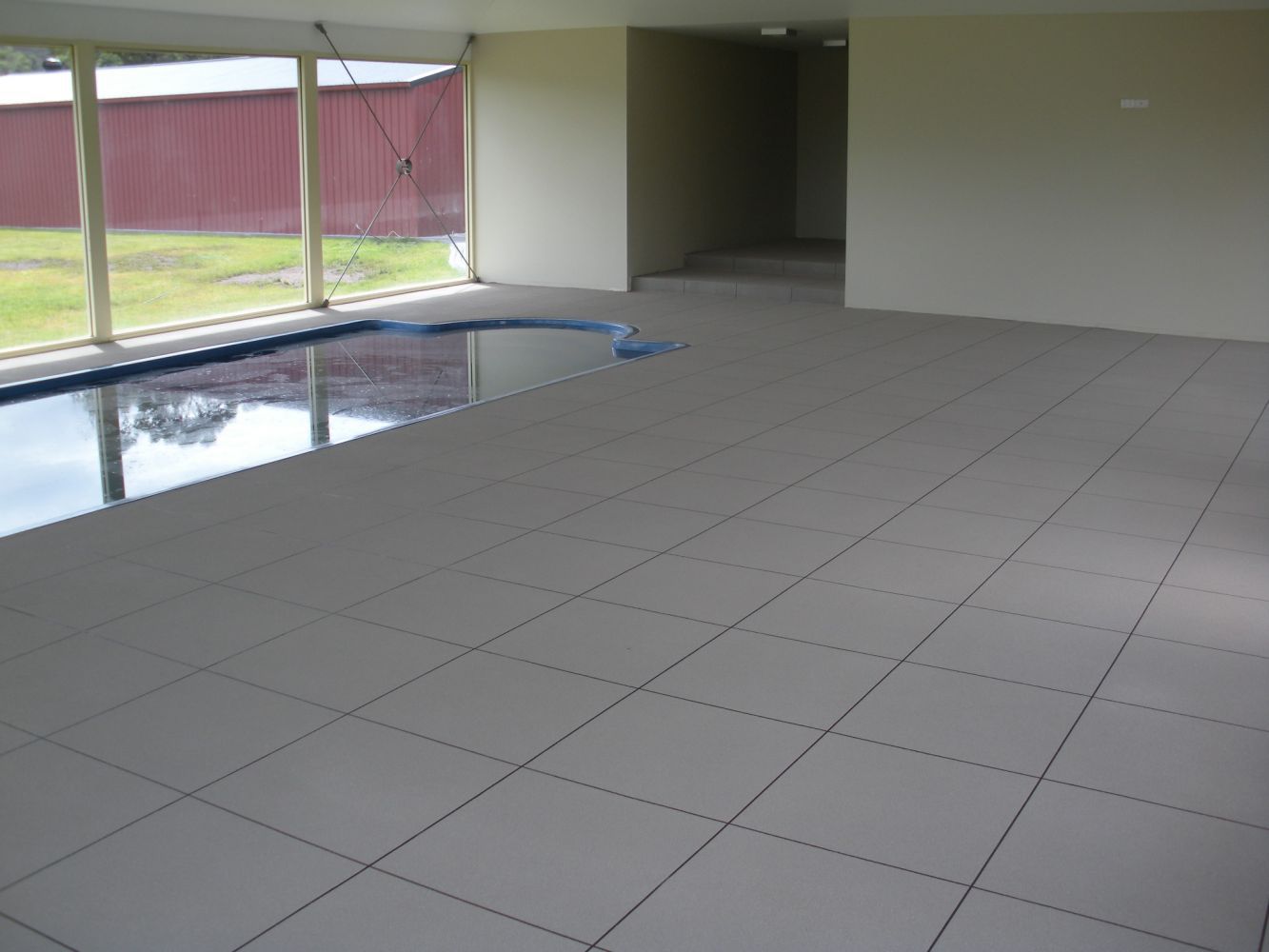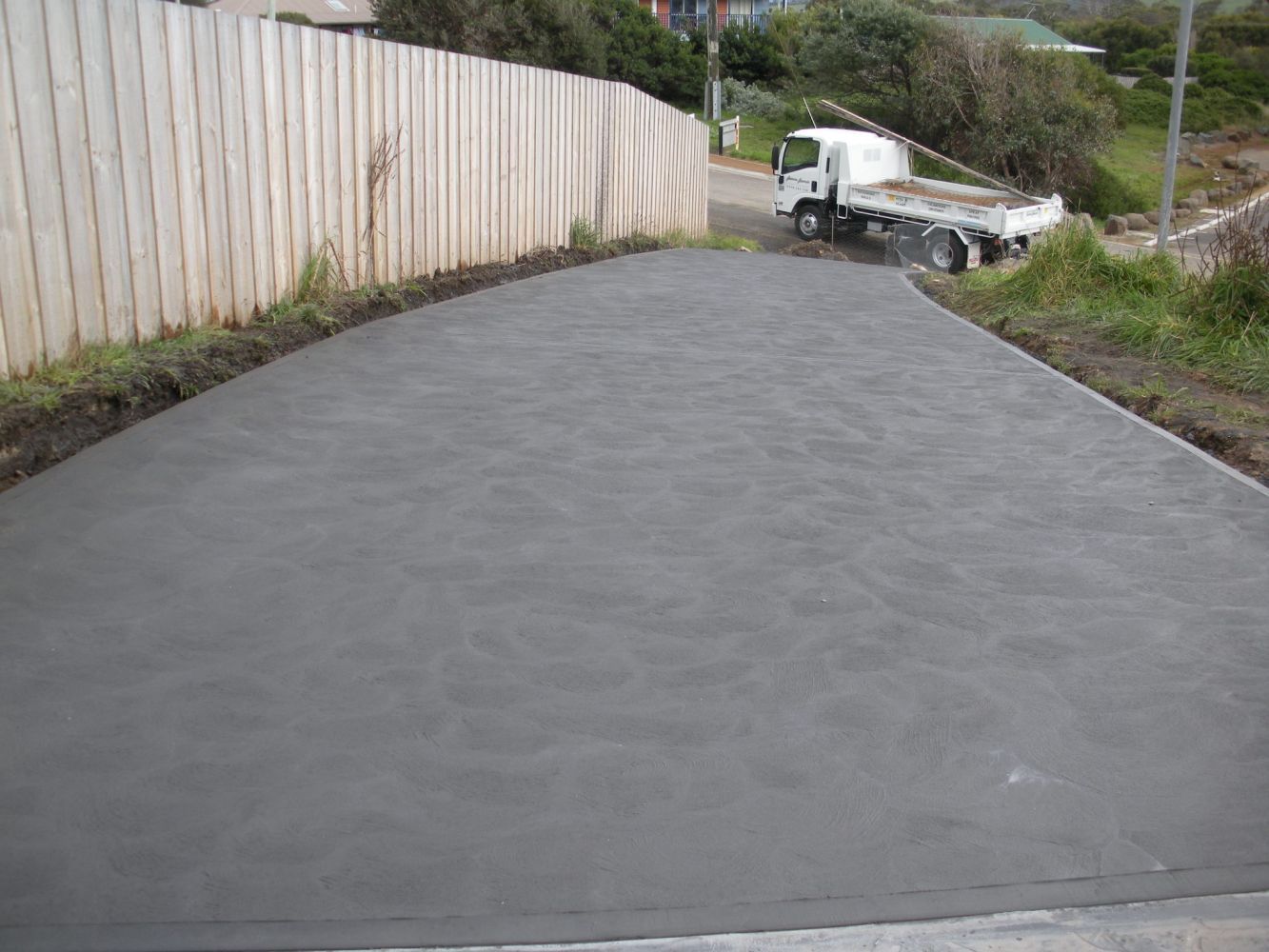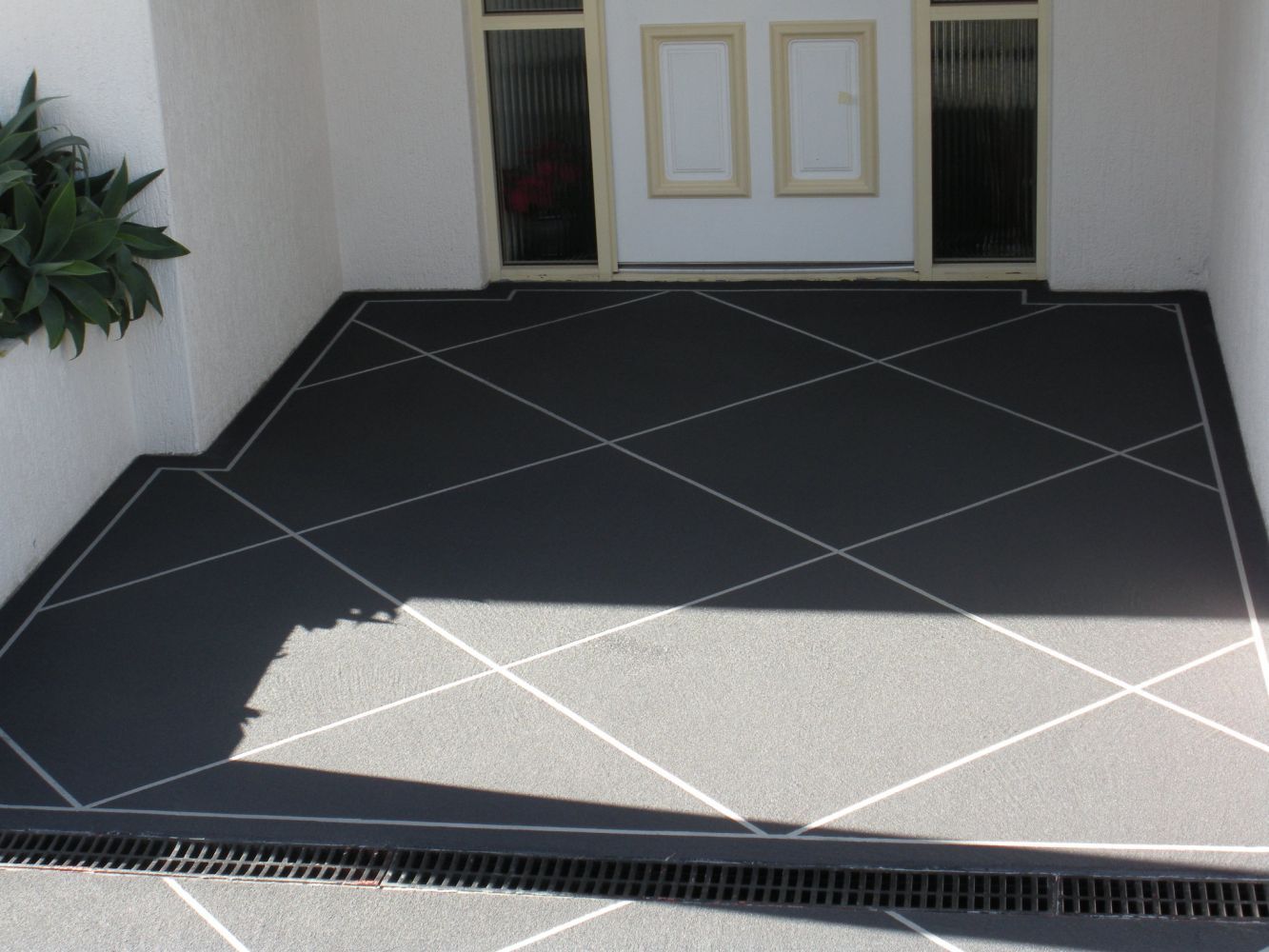Your Concreting Questions Answered
Concrete FAQs
-
Will my concrete crack?
Like all other materials, concrete will slightly change in volume when it dries out. This change in volume brings about tensile stresses with the concrete which causes it to crack. This is the reason that contractors put joints in concrete pavements and slabs to allow the concrete to crack in a neat, straight line at the joint, allowing it to move when the volume of the concrete change due to shrinkage. The prevailing weather conditions may also contribute to cracking with the risk most likely on warm days, dry days with low humidity, and/or windy days.
-
What factors influence the cost of concrete?
Numerous factors can affect the price of concrete works, some more so than others. Factors include, but are not limited to; building site conditions, building site location, total area of concrete paving, type of concrete and finish selected, design of the driveway, slope of the building site, access to paved areas, local council or estate/developer requirements, discounts and upgrades such as concrete sealing, stronger concrete and/or, stronger reinforcement.
-
Will coloured concrete fade?
Yes. However, sealing of any paved area is highly recommended by Concrete Concepts to minimise fading and staining.
-
What colours are available?
Concrete Concepts use Colourmix pigments that are added to the mix at the batching stage. This process ensures that the colour is mixed right through the concrete at the time of placement.
-
What is reinforcement and why should I use it in my slab?
Concrete is strong in compression (squashing) and weak in tension (stretching). The introduction of steel (reinforcement) in concrete improves the strength of concrete in tension. In a slab-on-ground, reinforcement increases the tensile strength and helps control the width of shrinkage cracks. If soil conditions are known to be poor, e.g. expansive clay soils, consult a structural engineer.
-
What grade of reinforcement and concrete will be used?
Standard specifications of Australian Concrete Driveway paving is; 25Mpa concrete (100mm minimum thickness), SL72 reinforcing slab mesh to all areas with 2 metre 3-L11 to any internal corner(s) to help prevent cracking. Upgraded reinforcement and/or concrete strength should be considered if heavy vehicles utilise the concrete area.
Concrete Resurfacing FAQs
-
What is the spray on coating?
Our Covatex concrete coating is a cement-based coating that has been specially designed and formulated to be applied to the surface of existing concrete or pebblecrete. The concrete is a strong, durable spray-on product that can simulate up to 35 exciting patterns, such as the traditional Cobblestone and Terracotta Tile.
-
Where can I use spray on coating?
The existing concrete surface must be of sound or stable condition for best results. Our coatings have various applications such as driveways, terraces, carports, pathways, entranceways, entertainment areas, pool surrounds etc. Custom-designed logos and motifs can also be created.
-
What if my existing concrete is cracked?
Generally shrinkage cracking can be repaired by using epoxy or polymer fillers. However no warranty can be given as to their non-recurrence due to the unknown nature of the sub-strata. Structural based cracking will require removal and replacement of the damaged area.
-
Does spray on paving have a warranty?
Yes. Dulux Avista is warranted under consumer law when applied by a licensed applicator. Sealing is recommended for retaining the finish and for revitalising existing spray paving.
-
How long can the spray on coating last?
Our Dulux Avista concrete coating has been independently tested. The results indicate that if the spray-on coating is applied in accordance with the manufacturer's specifications, a service life in excess of 7 years may be expected.
-
How thick is spray on coating?
If a single base coat and 2 coats of spray on top coat are applied, the surface may build up to approximately 2-5mm over the existing concrete.
-
What colours do you have?
We have a range of 20 colours, ranging from vibrant and contemporary colours through to more traditional colours like Terracotta and Brick Red.
-
Can I have a different basecoat colour?
Yes, if you want to change the grout colour in your pattern from the underlying concrete colour, you can choose a different basecoat for your job. There are 20 colours to choose from.
-
How often do I need to reseal?
Each job is different, and the amount of wear and tear will dictate how often you should reseal. Generally, driveways or heavy movement areas will require resealing every 24-36 months. Less trafficked areas may last longer.
Exposed Aggregate FAQs
-
What blends of stone are they?
There are currently up to 20 different blends of stone available. Each blend differs in price depending on the type of stone used.
-
Can I add colour to the mix?
Colour can be added to the mix to change the cement paste from grey to any available colour.
Additional costs do apply, and each colour varies in price.
-
Should I have my finished concrete sealed?
We recommend that all exposed aggregate concrete is sealed. This helps to prevent dusting of the surface and also enhances the stone colour.
If a colour is blended into the cement paste then it will be further enhanced once the seal coat is applied. At Concrete Concepts our pricing includes sealing of all of our exposed work.




